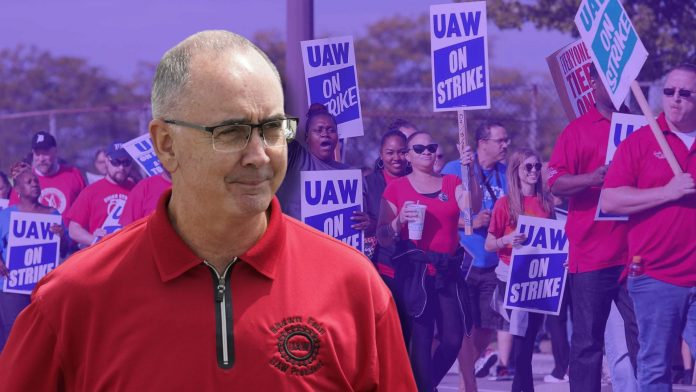The United Auto Workers (UAW) union and Detroit-Three automakers have made slight progress toward negotiating a contract before current agreements expire in just two days on September 14.
United Auto Workers has now rejected all initial offers from Ford, Stellantis and General Motors and is currently negotiating through multiple counterproposals. Stellantis expressed positivity over the talks when addressing its employees earlier this week, stating: “We are on a good path and remain committed to reaching a tentative agreement without a work stoppage that would negatively impact our employees and our customers.”
While the union has pursued multiple concessions, such as reduced work weeks, improved benefits and job security guarantees in the face of the automotive industry’s transition to electric vehicles, it has remained most focused on its pay increase demands. United Auto Workers representatives have been seeking a 46% raise over the course of four years, with a 20% increase due immediately on execution of a new contract. However, Reuters and Automotive News now say that the organization has reduced its wage demands to a 36% increase by 2027. The amount is still well above the 10% offered by Ford, 14.5% provided by Stellantis and 16% proposed by General Motors.
Should Detroit-Three car manufacturers and union leadership fail to sign a contract by the September 14 deadline, United Auto Workers members have voted in favor of a labor strike. The costs of such a disruption could amount to billions, affecting all parts of the automotive industry, including dealers. Karl Brauer, iSeeCars.com executive analyst, noted that a 14-day strike “could cut domestic dealer supply by 25 percent,” while a 30-day strike “could halve it,” reversing marginal supply gains over the last few months and forcing already inflated vehicle prices up even more to combat constrained inventories. Brauer also noted that a strike of any magnitude could pose risks to the nation’s economy due to its reliance on the car sector: “Given the existing economic challenges facing U.S. consumers, a strike could be the tipping point into a recession.”



